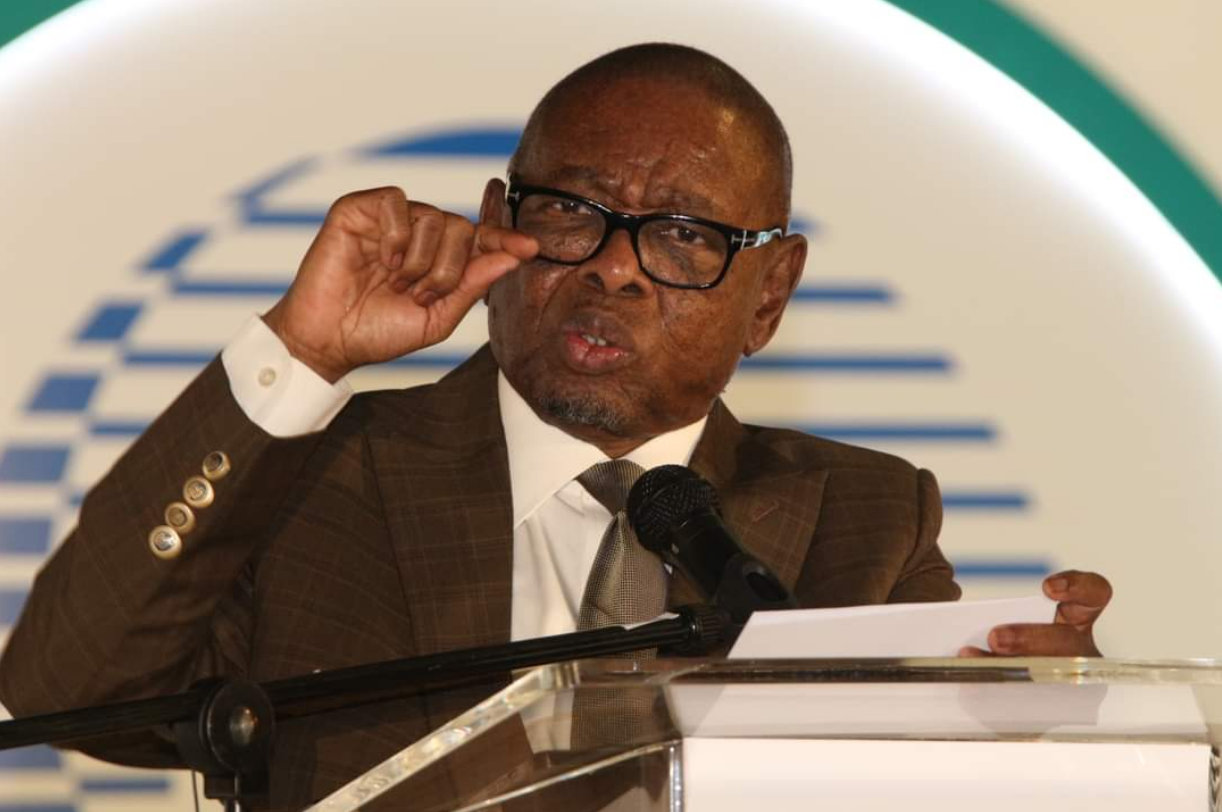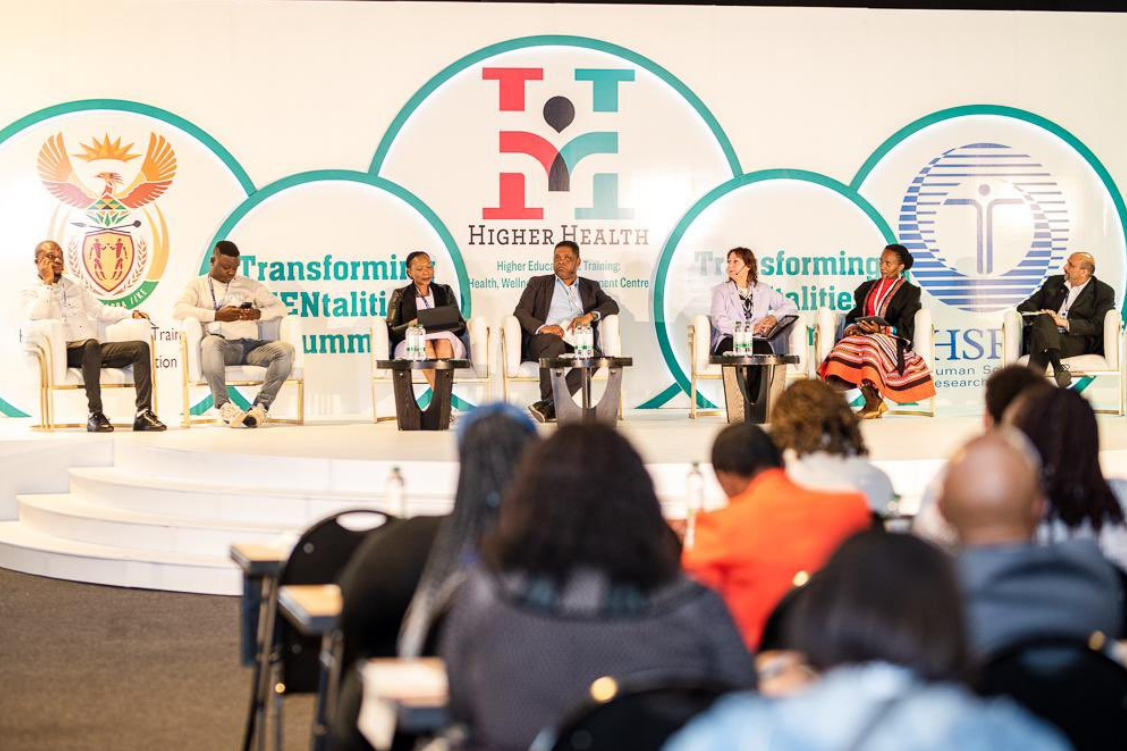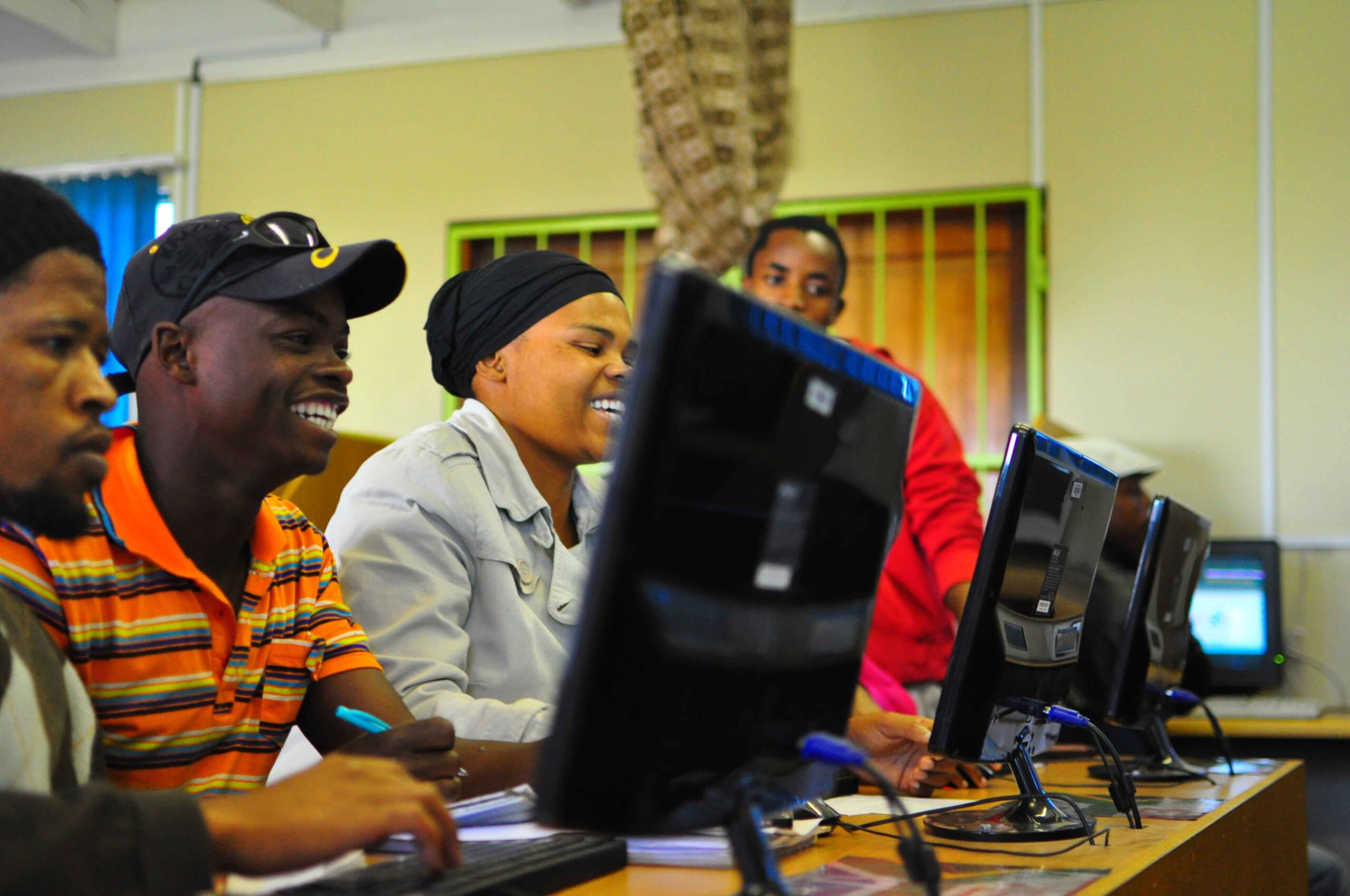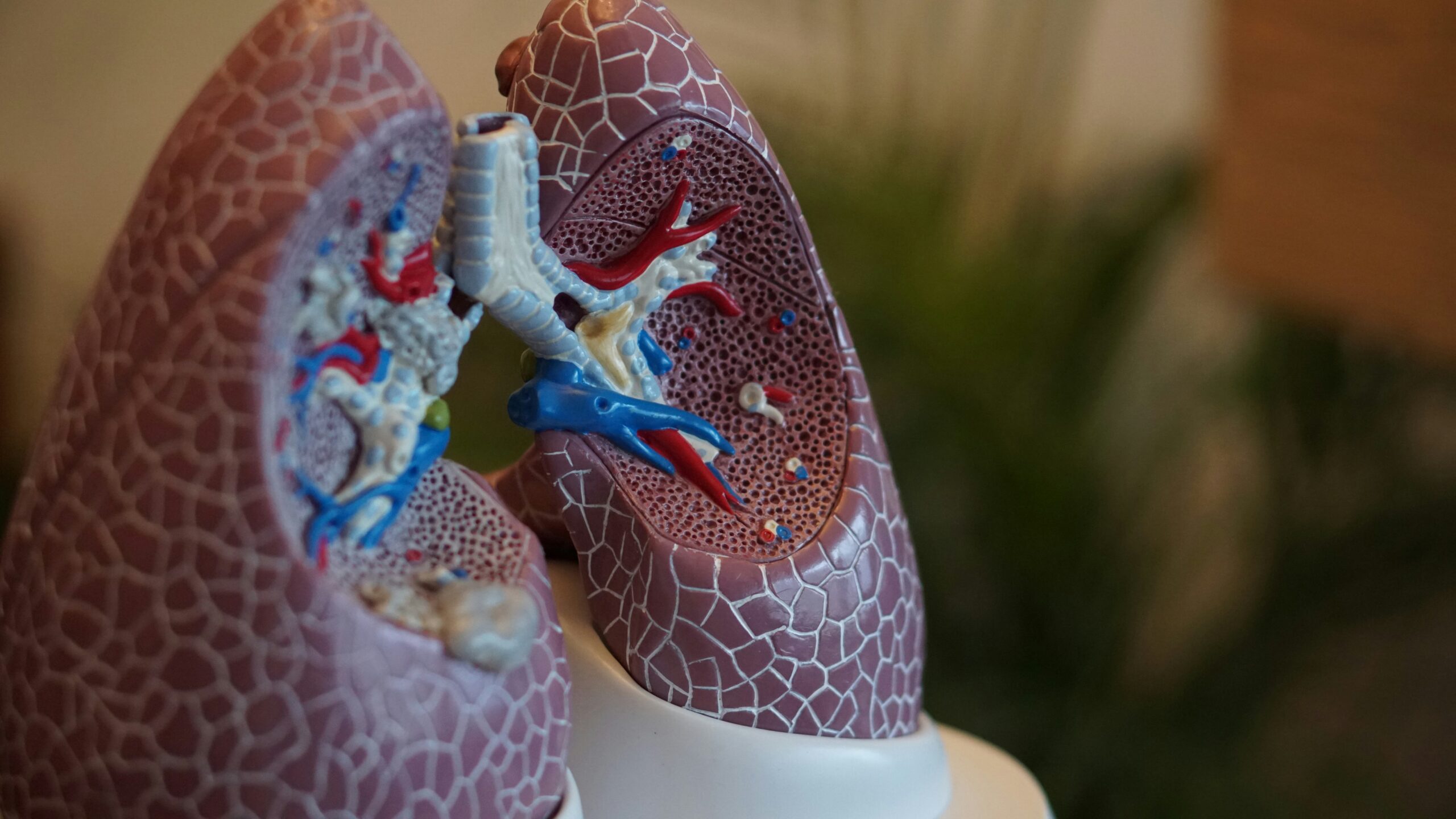Address by the Minister of Higher Education, Science and Innovation Dr Blade Nzimande on the occasion of the launch of the South African Transforming Mentalities Summit held at the Birchwood Hotel – Ekurhuleni
Johannesburg – In South Africa, a woman is raped every three hours revealed Higher Education, Science and Innovation Minister Dr. Blade Nzimande on Tuesday at the Transforming ‘MEN’talities Summit. He said South Africa was considered to be the rape capital of the world with 10 818 rape cases reported in the first quarter of 2022.
“The lifetime risk of experiencing GBV is 45.6% for South African women; well above the global average of 35% (WHO 2013),” said Dr. Nzimande.
“Sexual gender-based violence and intimate partner violence are amongst the most prevalent forms of GBV in young women aged 16-25 years (UNICEF). The rate at which women are killed by intimate partners in this country is five times higher than the global average.”
The minister said gender-based violence (GBV), a widespread and common occurrence in South Africa, was deeply ingrained in homes, workplaces, cultures, and traditions.

Background
I would like to open my address to this Summit today by providing sombre but realistic statistics about the reason we are gathered here today.
In South Africa, a woman is raped every three (3) hour and South Africa is considered to be the rape capital of the world with 10 818 rape cases reported in the first quarter of 2022.
The lifetime risk of experiencing GBV is 45.6% for South African women; well above the global average of 35% (WHO 2013).
Sexual gender-based violence, and intimate partner violence are amongst the most prevalent forms of GBV in young women aged 16-25 years (UNICEF).
The rate at which women are killed by intimate partners in this country is five times higher than the global average. Gender-based violence (GBV), a widespread and common occurrence in South Africa, is deeply ingrained in homes, workplaces, cultures and traditions.
This pandemic, because of unequal power between genders, has far-reaching effects that go on beyond violence itself.
It manifests in various forms that include physical, emotional, psychological, financial or structural harm and usually perpetrated by intimate partners, work colleagues, strangers and even institutions.
One might ask a question: Why is GBV so prevalent in South Africa and in the world at large? Is it because of the way males are brought up to exert power and control over vulnerable women?
South Africa’s Constitution is one of the most progressive constitutions in the world, as it entitles rights of full equality and freedom to women and public law protects women and girls from discrimination and oppression. Yet, we are facing a major challenge with GBV.
We know that gender-based violence is to be found in all South Africa’s ethnic, cultural and linguistic communities and is deeply connected to the history of patriarchy.
I should however point out that physical or psycho-social infliction of violence upon women and girls is not the only manifestation of gender-based violence in society. In fact, many forms of violence are not overt and personal, but structural, hidden and ‘naturalised’ in the organization of power in our society and economy – a point which I shall return to later.

Aims of the Summit
Having provided this background one may wonder how different is this Summit from others dealing with GBV and gender inequality.
The rationale for this Summit stems from discussions held within UNESCO over the past year dealing with a universal concern that we need to bring men and boys into the discourses on gender equality.
In 2015, UNESCO launched its Transforming MENtalities Programme in Latin America and the Caribbean, to promote positive redefinitions of norms of masculinity and meaningful engagement of men and boys, alongside women and girls, in the global pursuit for gender equality.
Globally, current trends show that men and boys have largely been excluded from the gender equality discourse. As the saying goes, it takes two to tango.
I must emphasise that gender inequality is not a woman’s issue. It is a human rights issue that affects everyone in society and the engagement of men and boys is a crucial element for us to achieve the progress we desire in South Africa and beyond.
Conventionally, issues about gender equality have often mainly been placed in the public arena by women. However, it is difficult to reform social structures towards equality without a broad social consensus and ownership between men and women.
To rectify the discrepancy in power relations, men and boys must become active and positive advocates for gender equality.
To tread on the rightful path towards a gender-equal society, stereotypes and norms need to be rethought, and relationships between women and men reshaped.
With an increasing awareness of men and boys as a necessary part of the solution, there is an urgent need to chart a clear road ahead for their involvement as change agents for gender equality.
As “Transforming ‘MEN’talities” postulates, a holistic approach is essential in facilitating women’s empowerment, and ultimately the realization of the United Nations Sustainable Development Goals and the objective of leaving no one behind.
Our objectives of Transforming ‘MEN’talities in South Africa are therefore broadly informed by UNESCO’s global initiative as stated below:
- Gathering context-nuanced and feminist evidence and building knowledge to inform gender-transformative policymaking;
- Countering and uprooting harmful gender norms to promote positive and healthy alternatives with the support of role models; and
- Strengthening the structures to engage men and boys as accountable allies for gender equality alongside women and people of diverse gender identities;
GBV issues confronting the PSET sector
Our Post-School Education and Training (PSET) sector is home to more than 2,5 million youth, with 51% being females.
Ten (10%) of all reported rape cases originate from young women in the higher education sector. It is sad that only one in ten women report a rape case.
My Department of Higher Education and Training (DHET), through HIGHER HEALTH, has done so much over the past few years to implement sustainable and impactful systems, controls, infrastructure, and safety nets to address the scourge of GBV within the PSET sector.
Our institutions are part of the broader community and are microcosms of the larger society and therefore, it is hard to totally isolate from the violence that stems from around us.
Since I launched the GBV Policy Framework in 2020, Higher Health has since been putting systems, controls, capacity in all our institutions on to respond to the issues of Gender-Based Violence (GBV).
Higher Health developed a Technical Task team which various PSET stakeholders as well as technical experts who are together developing multi-sectoral response to issues of GBV in the PSET system.
In 2021, the Task Team released procedural guidelines on how to respond to cases of GBV on campus; protocol on rape; and protocol on code of ethics.
As part of our Women’s month celebrarion this month, the Task Team released the Protocol on Campus Safety and Security Minimum Standards; the Protocol on Safety in Private Accommodation, the Protocol on Safety in Residences and Protocol on Staff-Student Relationships.
I must also indicate that Higher Health is currently working with the National Prosecuting Authority in developing Protocols on Statement of Complaint, Whistleblowing and other legislature requirements for our system.
HIGHER HEALTH continues to implement various programmes and support structures for students and frontline staff at institutions of higher learning. The programmes are offered on 420 campuses across South Africa – in urban and rural areas.
This leads me to another important achievement in addressing GBV in PSET institutions. This is in the form of the National Civic Education and Health Skills Programme which I launched in July 2023.
This is an online NQF Level 5 Civic and Health Education Skills Programme – and will be offered in all the twelve (12) South African launguages. I must say that this is a first of its kind in the Global South. This programme will cover modules that includes gender based violence.
One of our institution that will be playing a pivotal role in our efforts to deepen our fight against GBV is the Human Sciences Research Council (HSRC).
The HSRC will forge a nexus of academics and researchers from South African public universities and various organizations to harness the power of collective insights, rallying men and boys as staunch allies in our campaign to reduce violence, bolster human rights, and realize gender parity.
The HSRC will conduct studies that will pinpoint communities at risk. These studies will examine intricate layers of perception, aspiration, and change across KwaZulu Natal, Eastern Cape, Western Cape, and Limpopo—provinces which bears the brunt of reported rape cases.
Our journey will not be solitary. It will be a collective effort of research networks, embracing institutions such as Nelson Mandela University, University of Western Cape, University of Venda, and University of KwaZulu-Natal.
These centers of knowledge will join hands to illuminate pathways toward understanding and transformation of Mentalities.
We will also engage our PSET institutions through seminars and workshops in order to have inclusivity and impact.
Furthermore, our outreach programme will sensitize young minds to gender issues.
Through our engagement today, we have another opportunity to come up with sustained methods to engage and empower men and boys on existing societal norms of masculinities and challenge negative gender stereotypes and behaviours.
According to World Health Organisation (WHO): “Since wars begin in the minds of men and women it is in the minds of men and women that the defences of peace must be constructed”
Framing the transformation of MENtalities
At this stage, I think it is important for me to locate the Tranforming MENtalities programme in the broader context of the struggle to transform unequal gender relations.
Tranforming MENtalities is about transforming the way men and boys build relations with women and girls, about the liberation of men and boys from anachronistic and dominant positionalities.
It is about men and boys unlearning reactionary habits and embracing emancipatory values, norms, roles and practices in the multiplicity of relationships they enjoy with women and girls.
This relational perspective is important as it requires men and boys to an active part in co-creating new ways of relating to women and girls in private and public, domestic and professional, economic, social and political life.
It means constructive and respectful dialogue, willingness to be vulnerable and open to embracing a new pathway, an ability to listen, learn and unlearn in multiple relational settings with women and girls. MENtalities is therefore a campaign to establish the co- creational responsibilities of men and boys in the struggle for gender equality.
Furthermore, I want to argue that the term MENtalities should not be imply an idealistic perspective of gender transformation – that is, the notion that a mere appeal to changing the ‘mentality’ of men and boys will, by itself, liberate women from gender inequality and oppression.
This would be naïve. It is for this reason that we cannot delink this campaign from the wider struggles aimed at transforming the structural relations of power that define and reproduce gender inequality in society and economy.
My view is that one can only provide a proper explanation of the roots of the psycho- social oppression of women and girls in the unequal distribution of economic and political power in society, and specifically, the capitalist economy – women are structurally located at the bottom of the economy – if measured by pay, investment income, land, fixed property, etc.
Black working class women are faces a triple oppression (class, race and gender) both in the mode of production and in the domestic sphere.
Thus, unless we root out the structural inequalities of capitalist gender exploitation and oppression, we will not provide the material bases upon which gender power relations can be reset in society at large and provide a foundation for the psycho-social and cultural emancipation of women – and by definition men and boys – in society.
In other words, the campaign to transforming the MENtalities of men and boys must be fought in conjunction with the struggles to radically alter the structural position of women especially black working class women in the economy.
This must manifest in income parity, decent pay for women-led occupations such as domestic labour, greater representation in male-dominated professions, equality in career advancing and promotional opportunities, executive and managerial leadership in all sectors of the economy.
This campaign must also be fought alongside struggles for the emancipation of women and girls in cultural, social and domestic life, where anachronistic and sexist practices prevail to this day – often hiding under the veil of ‘culture’, ritual or simply belief.
We must demand no less than the total emancipation of all forms of gender oppression and exploitation!
Conclusion
In conclusion, the path we tread is one less frequented, yet intrinsically vital. The journey encompasses a range of aims, from enhancing women’s access to healthcare services to eradicating violence against women and children.
It includes rebalancing domestic responsibilities between genders and fostering equitable relationships in the workplace.
These are not mere aspirations but benchmarks of a truly democratic and liberated society.
Our ambitions find resonance in the grand tapestry of global goals as it will become a lighthouse guiding us towards the shores of the UN SDG 2030 Agenda.
By addressing gender inequalities, we will be championing human rights, nurture women’s leadership, and advance the well-being of all.
this is the reason that our South African programme is underpinned by five pillar which seeks to mobilize communities, advocate for change, establish research networks, facilitate research case studies, and create intergovernmental forums.
We must ask: Is our focus solely on educational institutions, or do we extend our reach to broader communities? How can we nurture dialogues that shift perspectives and attitudes? These questions will guide our path toward gender transformation.
There is no doubt that good work is taking place in South Africa to fight GBV. This work must continue, be supported and funded.
I am thinking here of the work by Professors Hugo ka Canham (UNISA), Malose Langa (Wits) and Kopano Ratele (Stellenbosch). Langa and Ratele’s recent contributions published by Wits Press, must be read and could be prescribed in universities.
As I indicated earlier, new community / township research led by the HSRC will be done urgently, particularly in townships that are reporting the highest prevalence of GBV cases.
With these words, let me take this opportunitity to thank both my Department of Higher Education and Training and the Department of Science and Innovation, HIGHER HEALTH and the HSRC, my Cabinet colleagues who have joined me today, all PSET stakeholders, including of students leadership and Labour.
I am looking forward to receive recommendations from this Summit which will propel us to a more higher level in our fight against gender based violence.
Thank you
Issued by: Department of Higher Education and Training, Science and Innovation
Images via the Ministry of the Department of Higher Education and Training, Science and Innovation


